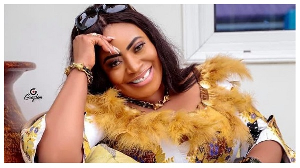Media personality and gender advocate, Josephine Oppong-Yeboah, has called for the creation of a just society where individuals in romantic relationships or marriages, particularly women, feel safe to report domestic violence or leave abusive situations without facing stigma.
She highlighted that many women remain in abusive relationships due to societal stigmatisation, often rooted in socio-cultural practices.
This fear, she explained, forces victims to endure abuse until they are either severely harmed or killed.
Citing the recent case of an Olympian woman in Uganda who died from domestic abuse, she expressed concern over the cultural expectation for women to endure such situations.
In an interview with Graphic Online on Thursday, September 5, 2024, Oppong-Yeboah encouraged women and others in abusive relationships to prioritise their safety and mental health by walking away.
She noted that some women have developed mental illnesses as a result of staying in abusive homes.
She urged women to speak out against gender-based violence and called for society to reject repressive cultural and religious norms that perpetuate abuse, particularly against women and children.
"In this era, we should not tolerate any cultural or religious practices that repress women," she noted.
Ms Oppong-Yeboah also praised the global trend of women taking bold actions to challenge gender-based violence and called for more voices to be raised.
“We should not stay silent in the face of gender-based violence. Don’t hide or pretend about it. Speaking out is a sign of strength, not weakness," she stated.
For her, "Once you speak up, help will come.”
She further urged the government and its agencies to take strong actions against perpetrators of domestic abuse, especially those who harm their partners.
Ms Oppong-Yeboah expressed concern over cultural practices that impede women’s rights, particularly domestic violence, where women are often treated as second-class citizens.
She called on traditional rulers to help educate their communities to stop harmful practices that violate women's rights.
She also stressed the importance of reorienting the police to treat domestic violence as a serious crime, rather than dismissing it as a "family issue."
Click to view details



Health News of Saturday, 7 September 2024
Source: Kwame Zadok, Contributor

















